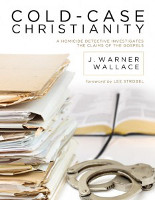 A few days ago I got home from a speaking tour in Hamilton, Muriwai Beach, Avondale (for those outside of New Zealand, those two are both in the Auckland region) and Tauranga. Fifteen talks over eight days! All the talks were very well received, and the discussions that followed were excellent.
A few days ago I got home from a speaking tour in Hamilton, Muriwai Beach, Avondale (for those outside of New Zealand, those two are both in the Auckland region) and Tauranga. Fifteen talks over eight days! All the talks were very well received, and the discussions that followed were excellent.
The overall theme of the talks was faith and reason, unpacking some of the ways in which Christians have used reason to commend what they believe as true, along with some of the implications of Christianity actually being true. The opening talk at a couple of venues was directly about the crucial role of reason within the Christian faith, reflecting on the observation, among others, that “commitment without reflection is fanaticism.” The change of this site’s address to rightreason.org is motivated by this commitment to the reasonable discussion and defence of what we believe and why (whether overly Christian or not).
Against this backdrop, imagine the sense of irony that swept over me yet again when I arrived home, checked my email and read the following message (we’ll call the author J, who has consented to this email being made public).
How can you keep up the pretense that you know about life after death. You mock common sense. You trade on peoples [sic] fears of the dark and the unknown to put forward a controlling elitist superior position.
Reason in everyday decisions must prevail over blind faith
Deep sigh.


 Busy times are ahead!
Busy times are ahead!


 When possible, don’t wait until something goes terribly, tragically wrong until you decide what you think about it.
When possible, don’t wait until something goes terribly, tragically wrong until you decide what you think about it. A version of this review was first posted at
A version of this review was first posted at